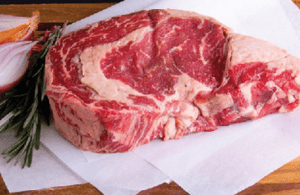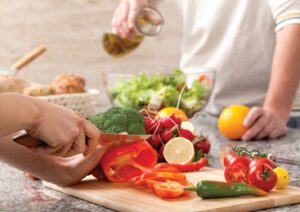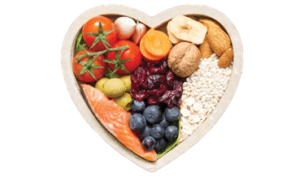
A Summary of a Sara Keough Talk, Written By: Dale Strickler
“You are not only what you eat, you are also what you eat has eaten. And when you eat, you aren’t eating for one, you are eating for a trillion, and those trillion eat for you.”
That is my summary of a talk I heard recently given by eco-nutritionist Sara Keough. Sara has a unique background, in that she earned a degree in biology and worked as a field biologist in wetland preservation before she went back to school and earned a master’s degree in human nutrition. She now works as a nutrition consultant and is part of the Understanding Ag technical advisor team. Recently Sara has been exploring how farming practices affect not only soil health but also how soil health affects the quality of the food we consume, and how those dietary choices affect the trillions of microbes in our gut, and how those microbes affect our health. What is becoming increasingly apparent is that most of our major human diseases we fight now (cancer, diabetes, heart disease) are all a direct result of our dietary choices and of how our food is grown, and that was a topic Sara tackled in her talk I was privileged to hear at the 2021 Fuller Field School (www.fullerfieldschool.com).
Some of Sara’s talk was no surprise at all, such as the basic premise: we eat too much of the wrong kind of food, and too little of the right kinds of food. What is the wrong kind of food? Take a look at the typical American diet. Our diet is heavy in sugar, starch and vegetable oils. Sugar and simple starches can cause an overgrowth of Candida yeast in our gut, which can lead to all sorts of health issues, and the yeast actually gives off chemicals that cause us to crave more sugar or starch to keep them fed. While vegetable oils and margarine were at one time promoted as a healthier alternative to animal fats like lard and butter, we have discovered that they are in fact much worse for us. Most vegetable oils, with the exception of coconut oil and avocado oil, undergo drastic changes upon heating which can create carcinogenic compounds. One major consideration of the fats and oils we eat that affects our health is the ratio of Omega 6 to Omega 3 fatty acids. We need both O6 and O3 in a healthy diet, but we need them in a balanced ratio close to 1:1. But most of the foods we consume are very high in Omega 6 fatty acids and low in Omega 3 fatty acids, and this preponderance of Omega 6 in our diets causes inflammation. The typical American diet has an O6:03 ratio of 15:1 which is a long way from the ideal 1:1. Many vegetable oils are ridiculously high in Omega 6 fatty acids and low in Omega 3 fatty acids, with soybean oil being one of the worst offenders. Soybean oil is also very high in phytoestrogens, which can cause hormonal issues, particularly in young boys. Soybean oil has also been strongly correlated to obesity in scientific studies. Most of the meat we consume is also highly skewed towards a high ratio of Omega 6 to Omega 3 fatty acids, because what we feed our meat producing animals (primarily corn and soybeans) is very high in Omega 6 fatty acids. The result is that the typical American has an O6:O3 ratio of 15:1 instead of the ideal 1:1.
What should we be eating? Sara showed studies where different foods were examined and ranked based on nutrient density. The #1 most nutrient dense food? Hands down, it was liver. The study did not differentiate between liver from grass finished animals versus grain fed, but in other studies the nutrient density of grass finished ruminants was much higher than that of grain finished, including the content of Omega 3 fatty acids, which are so sorely lacking in the typical American diet. Grass finished ruminant meat, on the other hand, is close to an ideal balance of fatty acid composition. Grass finished meat is also quite dense in many other nutrients, particularly if the animals were grazed on a pasture that is rich in a diversity of forbs in addition to grasses and legumes.

One surprise was how meat from animal products can be quite rich in phytonutrients, which are the secondary plant compounds with health benefits, such as terpenoids, alkaloids, flavonoids, lignans, phenols, carotenoids, and tocopherols. It turns out that the phytonutrients found in forbs and some legumes accumulate in the fat of pastured animals, and grass finished meats have been found to be even richer in some phytonutrients than the plants from which they originate! This phenomenon has been referred to as “intelligent accumulation” of phytonutrients in animal fat. Organ meats in particular are quite nutrient dense, with concentrations of some nutrients being much better than muscle meats. Liver from a grass finished ruminant is about as close to a multivitamin as is found in nature, being particularly rich in Vitamin A, zinc, and every essential amino acid. Bone broth is another highly recommended animal food product, which supplies essential glutamine, a nutrient which is hard to find elsewhere. Food from grass finished animals is pointedly superior to grain finished animals, and has been shown to be so health promoting that it appears that the decades old medical advice to people with heart disease that they reduce their intake of meat was not only wrong, but that if we change the type of meat we eat it can reduce the disease. According to one study published in the British Journal of Nutrition in September 2010, patients eating grass-finished meat had a 30% improvement in their O6:03 ratio, but people eating the same amount of meat from grain-finished animals had ratios that worsened.
Grass finished meat is a desirable focus, but what else should we be eating? For one thing, just as we need diversity in our cover crops for soil health, we need diversity of plant foods in our diet for human health. We benefit from having a wide range of different plant foods in our diet, as no one plant contains everything we need, but many contain a certain beneficial phytonutrient, and some have benefits but also contain antinutritional factors. For example, spinach and beets are high in many nutrients, but also contain high levels of oxalic acid which can cause kidney stones and thus are most healthy when they are a limited portion of the diet. Plant foods should focus on vegetative plant parts rather than seeds or grains. Fermented foods, such as sauerkraut, are also very useful components in the diet. Much of these phytonutrients are not for our direct benefit, but rather for the nutrition of the essential microbes in our gut that govern so much of our health status.

A timely portion of the conversation was how nutrition affects the immune system and how it affects Covid-19 in particular. Vitamin D has been shown to have protective effects against Covid, with one study showing a 47% decrease in covid infections among people receiving high rates of Vitamin D. Most of the US population fails to get enough Vitamin D, so choosing foods rich in Vitamin D and the precursors of Vitamin D may be literally lifesaving. Plant foods don’t contain the proper form of cholesterol to form Vitamin D upon sunlight exposure on the skin, so animal foods are the preferred food. People with darker skin need higher levels of Vitamin D and more sunlight than light skinned people to get the same protection. People with poor liver and kidney function, as might occur from alcohol abuse, are also prone to lack of vitamin D. If a person is choosing a diet to combat Covid, then it should be rich in not only Vitamin D, but also in Vitamin C, Vitamin A, Zinc and Iodine. Sara has found nutritional therapy to be highly effective in reducing the impact of Covid.

But by far my favorite part of Sara’s talk was the case studies of her clients with severe health issues who had been unable to find relief in the traditional pill-and-surgery medical world. It was quite amazing to see how much she was able to help so many people with a wide range of issues, and it made me think of all my friends and family that are suffering from various ailments that could be helped simply through a better diet consisting of intelligent food choices which were raised in healthy soils.
For more information and to learn from Sara’s talk, search YouTube for “Sara Keough regenerating”
Sara Keough MS, CNS, LDN, is an “Eco-Nutritionist” who began her career in ecological work in her home state of Colorado and now practices full-time as a clinical nutritionist in Maryland. She supports patients with a wide variety of health conditions including digestive issues, autoimmune disorders, heart disease, diabetes, and cancer. Sara is passionate about connecting her patients with local farms to source their food, as she truly believes that regenerative farmers are the real healers of the planet and play a pivotal role in restoring human and ecological health.
This article first appeared in the 8th Edition of Green Cover's Soil Health Resource Guide.
Also check out the 10th edition, our latest Soil Health Resource Guide, over 90 pages packed with scientific articles and fascinating stories from soil health experts, researchers, farmers, innovators, and more! All as our complimentary gift to you, a fellow soil health enthusiast!
